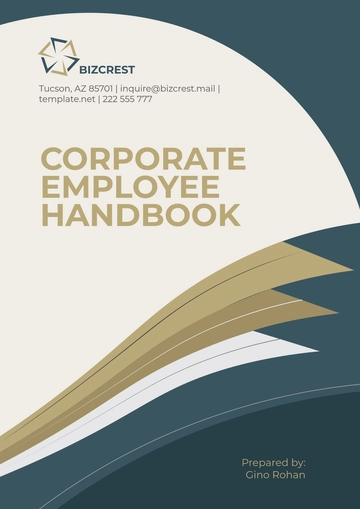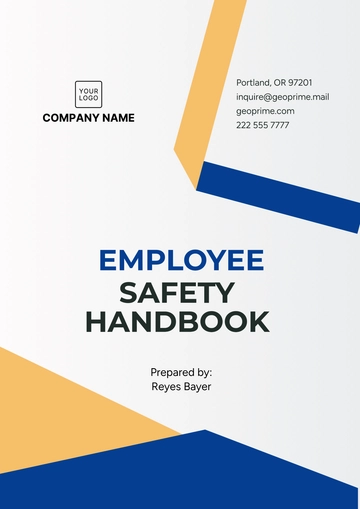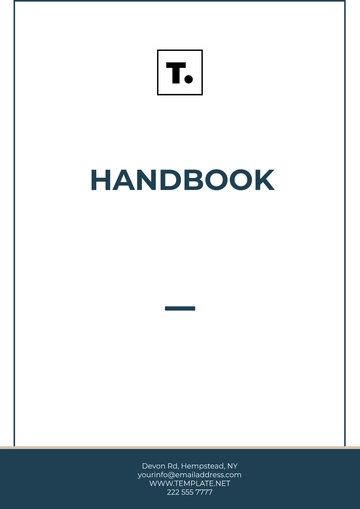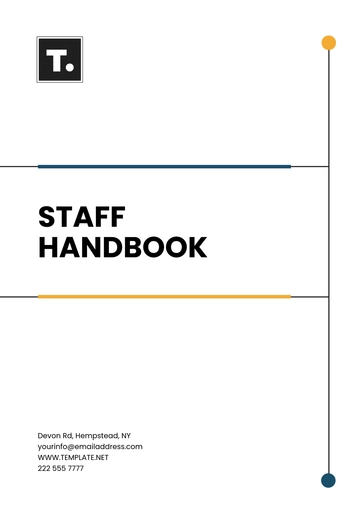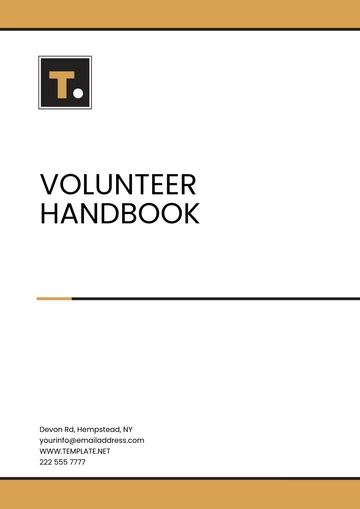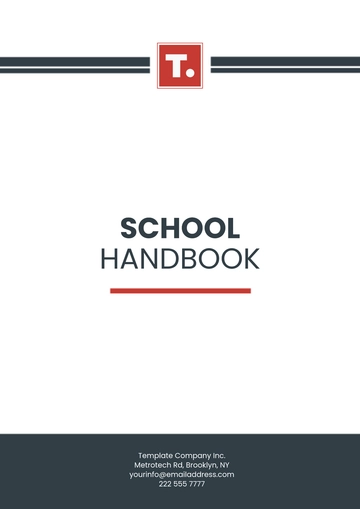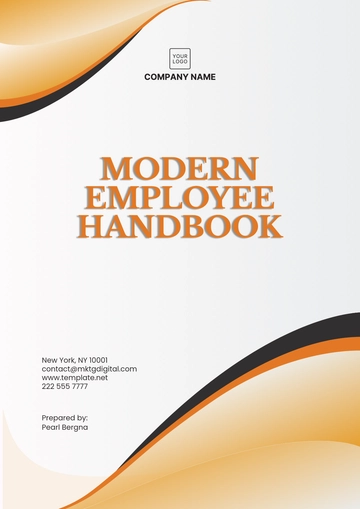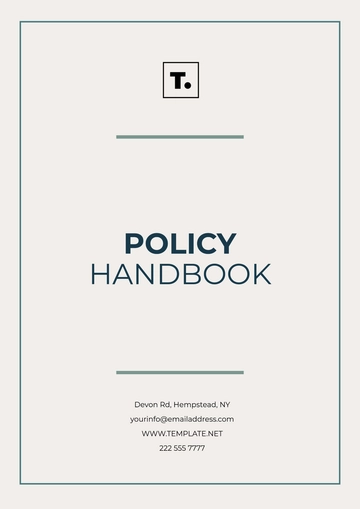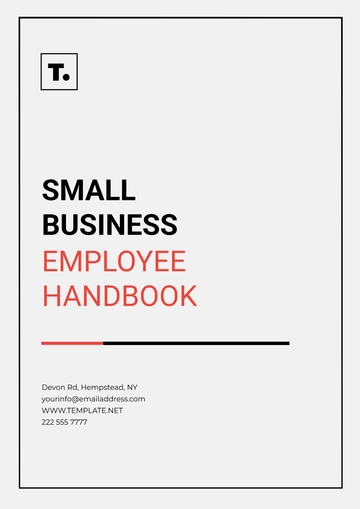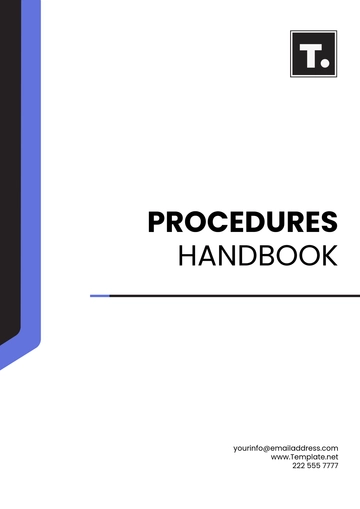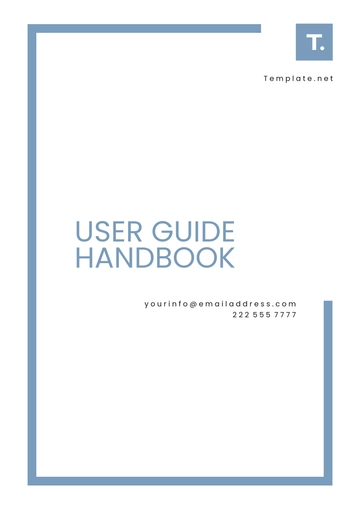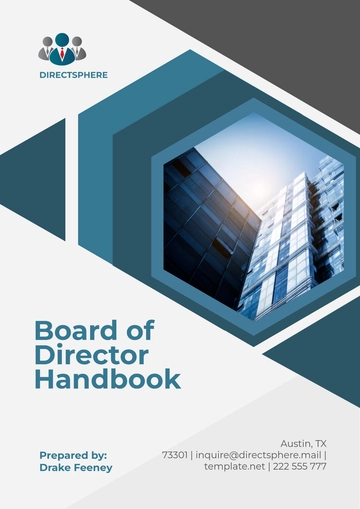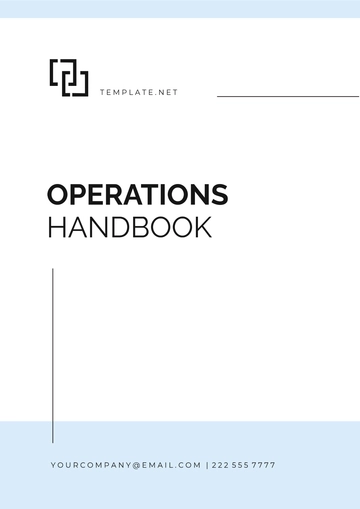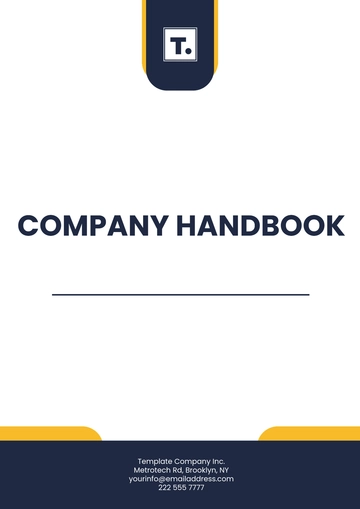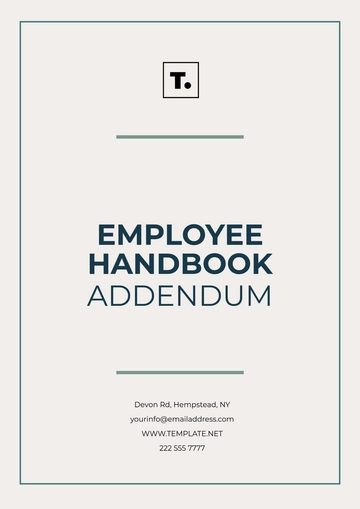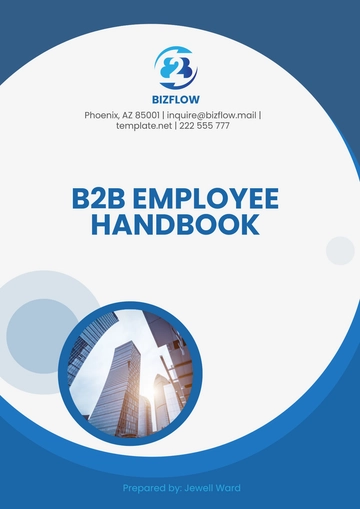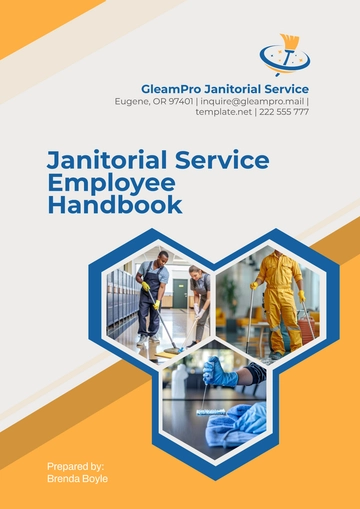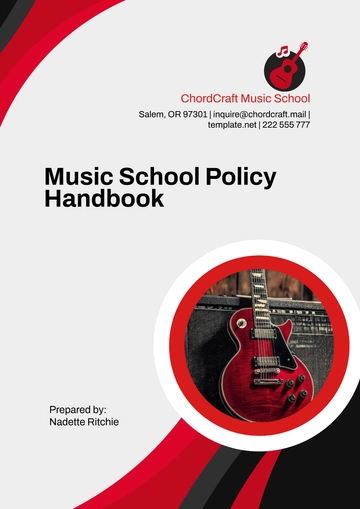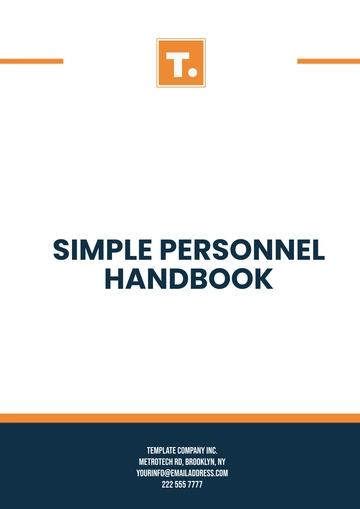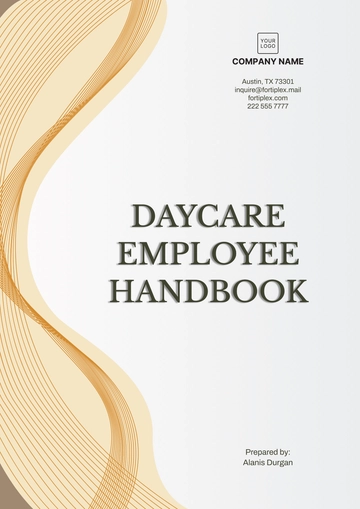Free Restaurant Management Handbook
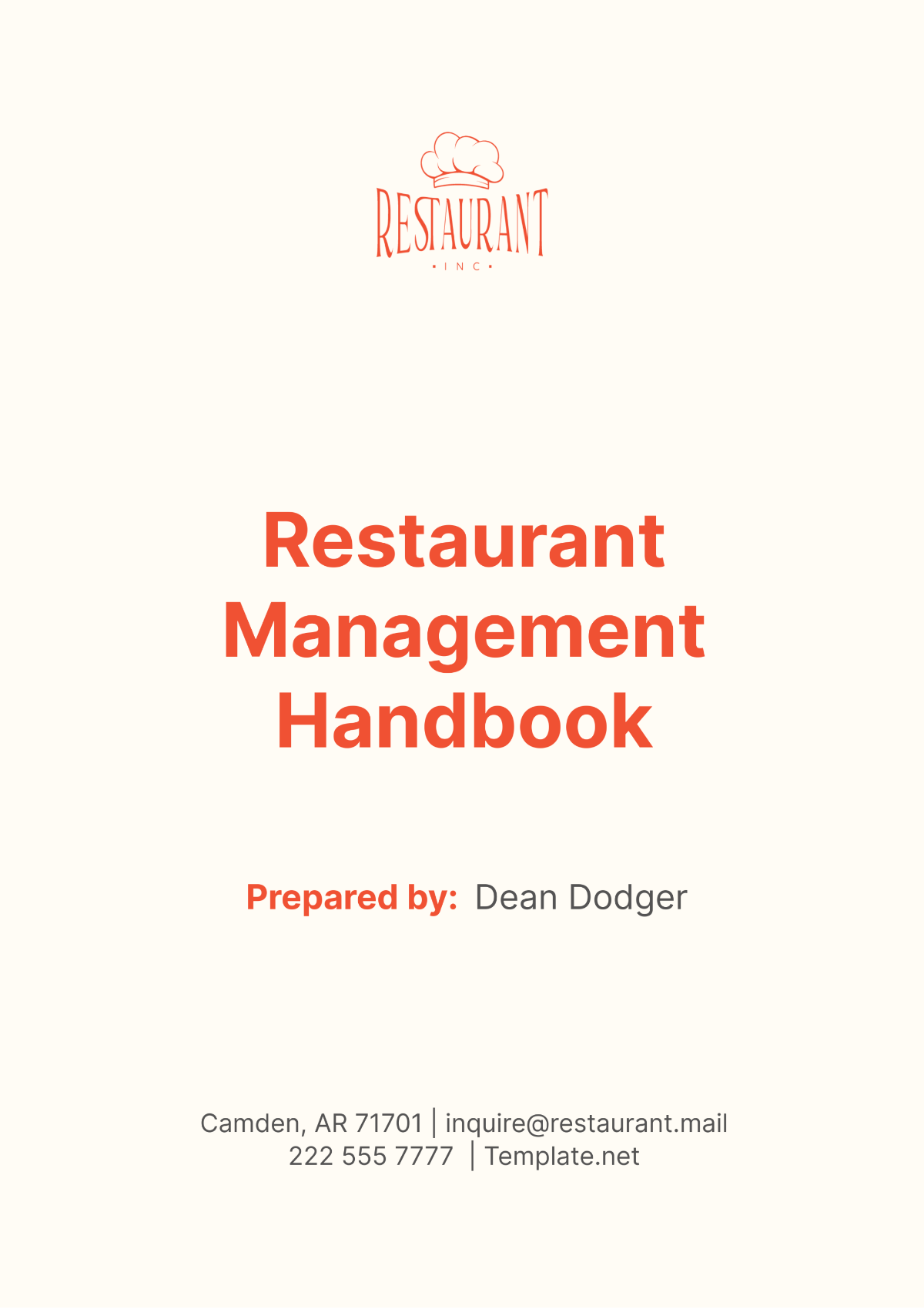
I. Introduction
Welcome to the Management Handbook of [Your Company Name]! This handbook is designed to be a comprehensive guide for our managers, providing essential tools and guidelines to effectively lead and manage within our establishment. By adhering to the principles outlined in this handbook, we aim to maintain exceptional standards of service, foster a positive work environment, and achieve success as a team.
II. Leadership and Management
At [Your Company Name], we believe that strong leadership is essential for the success of our business. In this section, managers will learn about different leadership styles and principles, including the importance of leading by example and fostering a culture of accountability. We emphasize effective communication strategies, conflict resolution techniques, and methods for motivating and empowering employees to perform at their best.
Leadership Styles: Our managers understand and leverage various leadership styles such as transformational, democratic, and situational leadership to suit the needs of their teams and situations.
Leading by Example: Managers set the tone by exemplifying integrity, professionalism, and dedication, inspiring their teams to excel and uphold company values.
Fostering Accountability: Managers establish clear expectations, define roles, and hold team members accountable for their actions and performance to cultivate a high-performing team.
Effective Communication: Open and clear communication builds trust, resolves conflicts, and fosters collaboration, enabling managers to maintain cohesive and motivated teams.
Conflict Resolution: Managers resolve conflicts promptly and constructively, fostering empathy, fairness, and mutually beneficial solutions to maintain team dynamics.
Motivation and Empowerment: Managers recognize and reward contributions, provide growth opportunities, and involve team members in decision-making, empowering them to excel and contribute to the organization's success.
Goal Setting and Time Management: Managers help set SMART goals and prioritize tasks, enabling teams to align with organizational objectives, maximize productivity, and achieve desired outcomes.
III. Human Resources Management
Human resources management is critical for creating a supportive and inclusive work environment at [Your Company Name]. In this section, managers will find comprehensive guidance on various HR processes, including recruitment and selection, onboarding, performance management, and handling disciplinary issues and employee grievances.
Recruitment and Selection: Managers follow structured processes for job posting, screening, and interviewing to hire candidates who align with our values and meet the needs of our team.
Onboarding Procedures: New hires receive thorough orientation and training to integrate seamlessly into the team and understand their roles and responsibilities.
Performance Management Systems: Managers set clear goals, provide regular feedback, and conduct performance evaluations to support employee growth and development.
Handling Disciplinary Issues and Grievances: Managers address disciplinary issues promptly, fairly, and confidentially, ensuring that conflicts and grievances are resolved in accordance with company policies and procedures.
IV. Operations Management
Efficient operations management is key to delivering a seamless experience to our customers. By implementing best practices in operations management, we can ensure that our customers receive consistently high-quality service at [Your Company Name].
Opening and Closing Procedures: Managers follow standardized checklists for opening and closing shifts to ensure smooth transitions and consistent operational readiness.
Inventory Management Techniques: Managers implement efficient processes for ordering, receiving, and managing inventory to minimize waste and maintain optimal stock levels.
Quality Control Measures: Stringent food safety protocols and sanitation standards are enforced to uphold the highest standards of cleanliness and hygiene in our establishment.
Customer Interaction Protocols: From managing reservations to seating arrangements and waitlist management, managers ensure seamless and personalized experiences for our guests while optimizing table turnover and maximizing revenue.
V. Financial Management
Financial management is essential for the success and sustainability of our business. In this section, managers will find guidance on budgeting, forecasting, cost control, cash handling, and financial reporting. We prioritize monitoring expenses, maximizing revenue, and maintaining profitability to support the growth and development of [Your Company Name] while ensuring responsible financial stewardship.
Budgeting and Forecasting Techniques: Managers employ strategic budgeting and forecasting methods to manage expenses effectively and anticipate revenue trends, ensuring financial stability and informed decision-making.
Cost Control Measures: Vigilant monitoring of food and labor costs allows managers to identify areas for improvement and implement cost-saving initiatives without compromising quality or service.
Cash Handling Procedures: Stringent cash handling protocols are in place to ensure accuracy, security, and compliance with financial regulations, safeguarding assets and maintaining financial integrity.
Reporting and Performance Metrics: Managers generate regular financial reports and analyze key performance indicators (KPIs) to track profitability, identify trends, and make data-driven decisions to drive business growth and sustainability.
VI. Customer Service
Exceptional customer service is at the heart of everything we do at [Your Company Name]. In this section, managers will find detailed information on creating a welcoming atmosphere, handling customer inquiries and feedback, and maintaining service standards. We provide training resources and support to our staff to ensure that every guest has a positive and memorable experience when they visit [Your Company Name].
Creating a Welcoming Atmosphere: Managers prioritize creating a warm and inviting atmosphere that makes guests feel welcome and valued from the moment they enter our establishment.
Handling Customer Inquiries and Feedback: Our managers are trained to address customer inquiries and feedback promptly and courteously, ensuring that any issues are resolved to the guest's satisfaction.
Maintaining Service Standards: Managers uphold high service standards by providing ongoing training and support to staff, ensuring that every interaction with guests reflects our commitment to excellence.
VII. Health and Safety
The health and safety of our employees and customers are paramount at [Your Company Name]. This section covers compliance with food safety regulations, emergency procedures, and training requirements for staff members. We are committed to maintaining a clean and safe environment to prevent foodborne illnesses and ensure the well-being of everyone in our establishment.
Compliance with Food Safety Regulations: Managers enforce strict adherence to food safety regulations and sanitation standards to prevent foodborne illnesses and ensure the safety of our guests and employees.
Emergency Procedures: Managers are trained to respond swiftly and effectively to emergencies such as accidents, injuries, or other unforeseen events, ensuring the safety and well-being of everyone in our establishment.
Training Requirements: All staff members receive comprehensive training on health and safety protocols to ensure that they are equipped to handle emergencies and maintain a safe environment for themselves and others.
VIII. Marketing and Promotion
Marketing and promotion play a crucial role in attracting and retaining customers. In this section, managers will find information on developing promotional campaigns, leveraging social media channels, and collaborating with local businesses to increase brand awareness and drive sales. By engaging with our target audience and showcasing our unique offerings, we can continue to grow and expand the reach of [Your Company Name].
Promotional Campaigns: Managers develop and implement promotional campaigns to attract new customers and retain existing ones, utilizing strategies such as discounts, loyalty programs, and special events.
Social Media and Digital Marketing: Managers leverage social media platforms and digital marketing channels to engage with our target audience, share compelling content, and build brand awareness.
Collaboration Opportunities: Managers explore collaboration opportunities with local businesses and community organizations to expand our reach, build partnerships, and enhance our brand presence within the community.
IX. Crisis Management
In the event of a crisis or emergency, it is essential to have a plan in place to mitigate the impact and ensure the safety of our employees and customers. This section provides guidance on developing a crisis management plan, establishing communication protocols, and implementing strategies to minimize disruptions to our operations.
Crisis Management Plan Development: Managers work proactively to develop a comprehensive crisis management plan, outlining clear roles, responsibilities, and procedures to be followed in the event of an emergency or crisis.
Communication Protocols: Managers establish communication protocols for effectively communicating with stakeholders, including employees, customers, suppliers, and the media, to ensure timely and accurate dissemination of information during a crisis.
Mitigation Strategies: Managers implement mitigation strategies to minimize the impact of a crisis on operations and reputation, such as contingency planning, resource allocation, and alternative service delivery methods.
Restoration of Normal Operations: Managers focus on restoring normal operations as quickly as possible following a crisis, prioritizing the safety and well-being of employees and customers while addressing any lingering issues and rebuilding trust within the community.
X. Conclusion
In conclusion, the Management Handbook of [Your Company Name] serves as a comprehensive guide for our managers, providing the tools and strategies necessary to lead effectively and navigate various aspects of our operations. By adhering to the principles outlined in this handbook, we are confident that our managers will uphold the standards of excellence that define our organization, foster a positive work environment, and drive continued success. With a focus on leadership, operational efficiency, customer service, and crisis management, our managers are empowered to lead with confidence and achieve our collective goals.
- 100% Customizable, free editor
- Access 1 Million+ Templates, photo’s & graphics
- Download or share as a template
- Click and replace photos, graphics, text, backgrounds
- Resize, crop, AI write & more
- Access advanced editor
Empower your management team with Template.net's Restaurant Management Handbook Template. Easily accessible and editable in our AI Editor Tool, this customizable template ensures clarity and consistency in your management guidelines. Crafted for efficiency and effectiveness, it covers essential topics such as leadership principles, operational procedures, staff management, and customer service standards.
